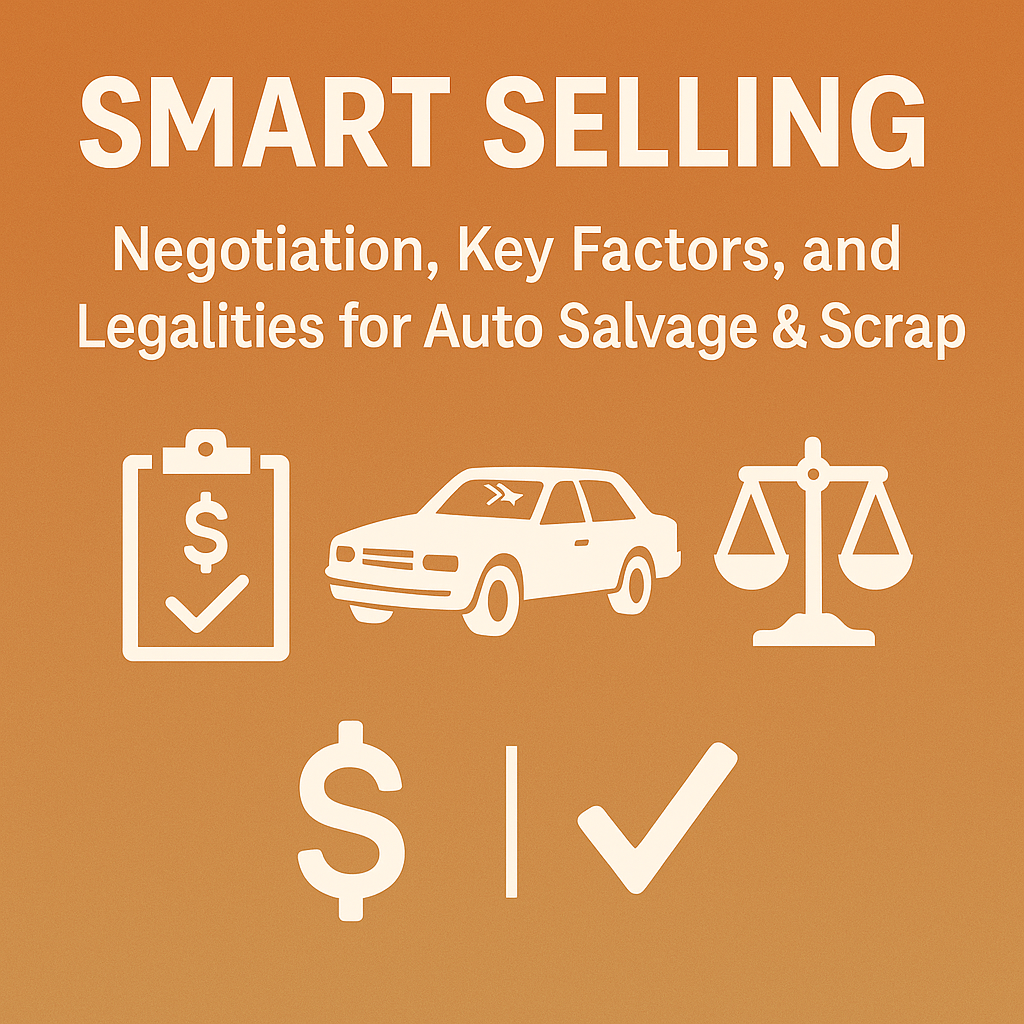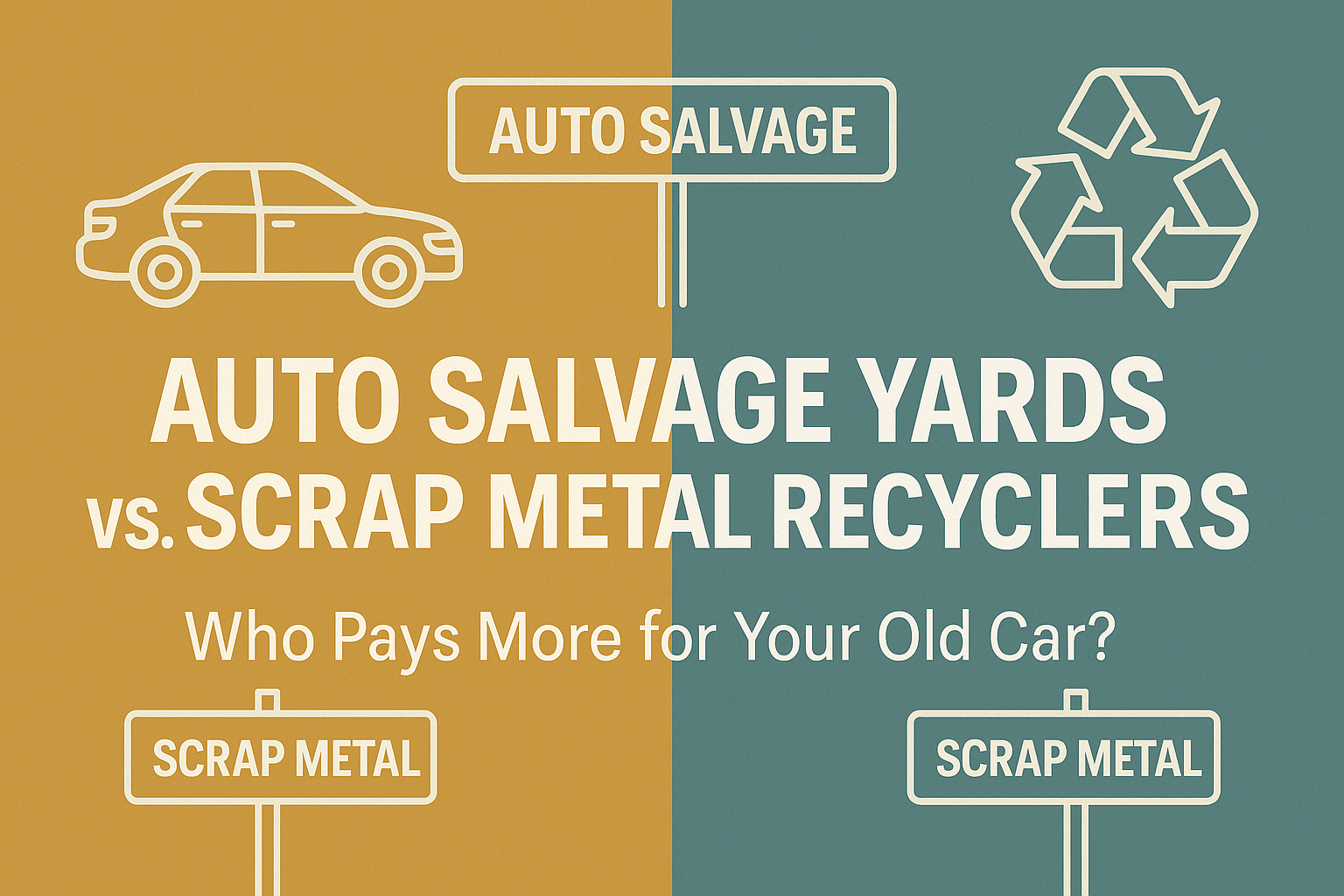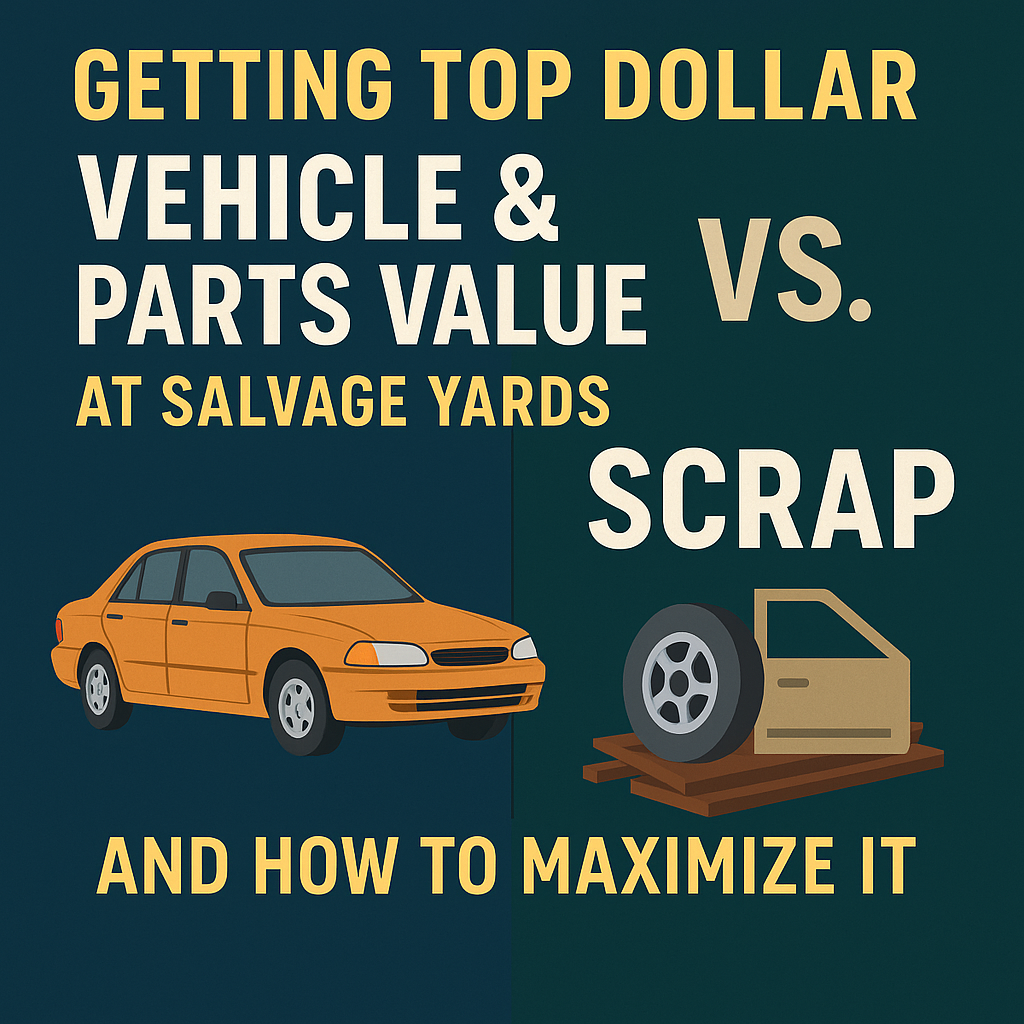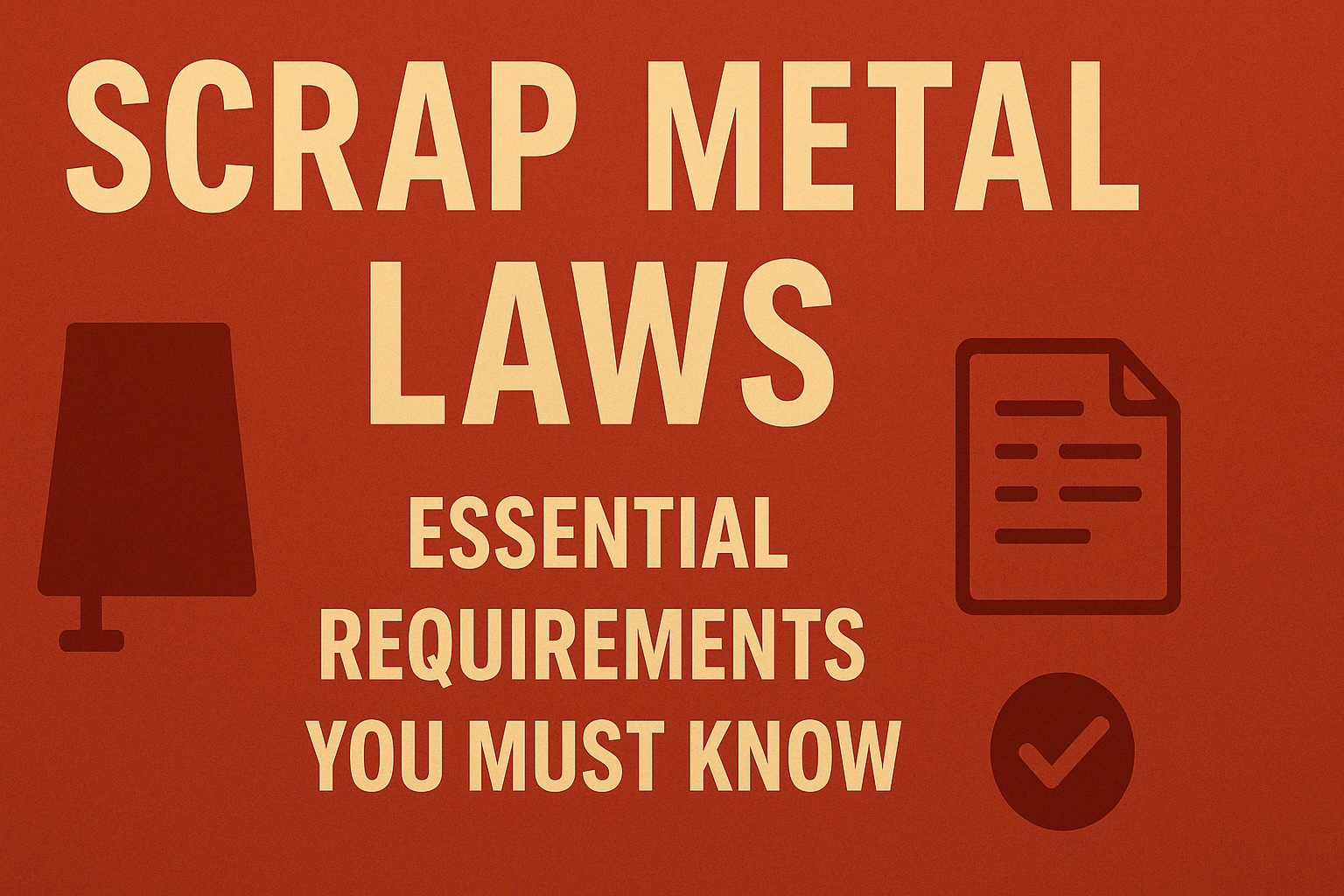Post 3 of 3: Smart Selling: Negotiation, Key Factors, and Legalities for Auto Salvage & Scrap

Welcome to the final installment of our series on maximizing your return from an old vehicle! In Part 1: Understanding Your Options, we explored the business models of salvage yards and recyclers. In Part 2: Getting Top Dollar, we detailed vehicle and part valuations and the lucrative hybrid selling approach.
Now, let’s equip you with the knowledge to seal the best deal. This post covers negotiation strategies, important regional and seasonal factors that affect pricing, and essential legal and environmental considerations. Plus, we’ll recap with a decision framework and answer some frequently asked questions.
Negotiation Strategies: Getting the Price You Deserve
Your approach should differ based on whether you’re dealing with a salvage yard or a scrap metal recycler.
Negotiating with Auto Salvage Yards
- Highlight Valuable Parts:
Know what’s in demand from your make/model and emphasize their condition (e.g., “The engine is strong with only 80,000 miles,” “Near-new Michelin tires on factory alloy wheels”). - Get Multiple Quotes:
This is your best leverage. Let yards know you’re shopping around. - Have Paperwork Ready:
A clear title and service records can help. - Understand Their Perspective:
Expect wholesale offers—they need to profit from reselling parts.
Negotiating with Scrap Metal Recyclers
- Know Current Metal Prices:
Have a rough idea of per-pound rates for steel, aluminum, and catalytic converter value. Prices change daily. - Know Your Vehicle’s Weight:
Their offer is heavily based on this. - Emphasize the Catalytic Converter:
Get a separate valuation if possible, or ensure it’s fairly included. - Get Multiple Quotes:
Prices can vary based on their current needs and contracts. - Timing Can Matter:
If scrap prices are low and you can wait, you might do better later (or vice-versa).
General Tip for Both:
Be prepared to walk away if an offer is too low. Politeness combined with firm knowledge of your vehicle’s worth goes a long way.
Regional and Seasonal Factors Influencing Price
- Geographic Variations:
Urban areas often have more competition, potentially driving prices up. Proximity to ports or mills can mean better scrap prices due to lower transport costs. - Seasonal Demand:
- Salvage Parts: A/C components are in higher demand before summer, heating parts before winter.
- Scrap Metal: Less seasonal, more tied to global industrial demand, but weather or construction can affect demand.
- Local Competition:
More buyers in your area generally means better leverage for you.
Legal and Environmental Considerations: Selling Responsibly
- Title Transfer:
Essential. You almost always need the title in your name to sell legally, even for scrap. Report the sale to your DMV to release liability. - Fluid Disposal:
Reputable salvage yards and recyclers are required to drain and dispose of hazardous fluids responsibly. You usually don’t need to do this yourself. - Environmental Regulations:
Licensed facilities follow strict rules for hazardous materials, batteries, and tires. Choosing a reputable buyer ensures responsible disposal. - Documentation:
Keep a copy of the signed-over title and a bill of sale for your records.
Conclusion: Making the Right Choice for Maximum Return
Choose Auto Salvage Yards When:
Your vehicle has many functional, in-demand parts (newer models, popular cars with good engines/transmissions, intact body panels).
Choose Scrap Metal Recyclers When:
Your vehicle is very old, extensively damaged, already stripped, or scrap metal prices are high and parts value is low.
Consider the Hybrid Approach:
For the highest return, remove and sell valuable components (especially the catalytic converter, good wheels/tires, battery, alternator) before scrapping the shell.
Golden Rule: Always get multiple quotes from both types of businesses. Research, know your vehicle’s key selling points, and negotiate confidently.
Frequently Asked Questions (FAQs)
Can I sell a car without a title to a salvage yard or recycler?
Generally, no. A title is usually required to prove ownership. Contact your DMV for a duplicate if lost.
Which pays more for a complete non-running vehicle?
Depends on why it’s non-running and its age/condition. Newer cars with good parts may fetch more at a salvage yard; old, worn-out non-runners are often better for a scrap recycler. Always get quotes!
Should I remove valuable parts before selling?
Often yes, for maximum return (hybrid approach)—especially the catalytic converter. But discuss with a salvage yard if you plan to sell the whole car, as removing parts affects their offer.
How often do prices change?
Recycler prices can change daily (metal markets). Salvage yard prices are more stable but do adjust based on part demand and underlying scrap values.
Do I need to drain fluids before selling?
Generally, no. Reputable buyers handle this.
We hope this three-part series has empowered you to navigate the sale of your end-of-life vehicle for maximum return while ensuring responsible disposal. By understanding the players, valuing your asset correctly, and negotiating smartly, you can turn that old car into a worthwhile sum.
Revisit our previous posts for more details:
More in Car Recycling
View All Articles
Post 1 of 3: Auto Salvage Yards vs. Scrap Metal Recyclers: Who Pays More for Your Old Car?
Discover the key differences between auto salvage yards and scrap metal recyclers, and learn how to get the best price for your end-of-life vehicle. Find out who pays more for your junk car and why.

Post 2 of 3: Getting Top Dollar: Vehicle & Parts Value at Salvage Yards vs. Recyclers (And How to Maximize It)
Learn how different vehicles and car parts are valued by salvage yards vs. scrap metal recyclers. Discover hybrid strategies to get the highest payout when selling your old car.

Alabama Scrap Metal Laws: Essential Requirements You Must Know in 2025
Alabama's scrap metal industry operates under strict regulations designed to combat theft and ensure legitimate transactions. Whether you're a scrap yard owner, automotive dismantler, or individual selling metal, understanding these laws isn't just important—it's legally required.
Ready to Turn Your Scrap into Cash?
Find the nearest scrap yards and get the best prices for your metal recycling needs.